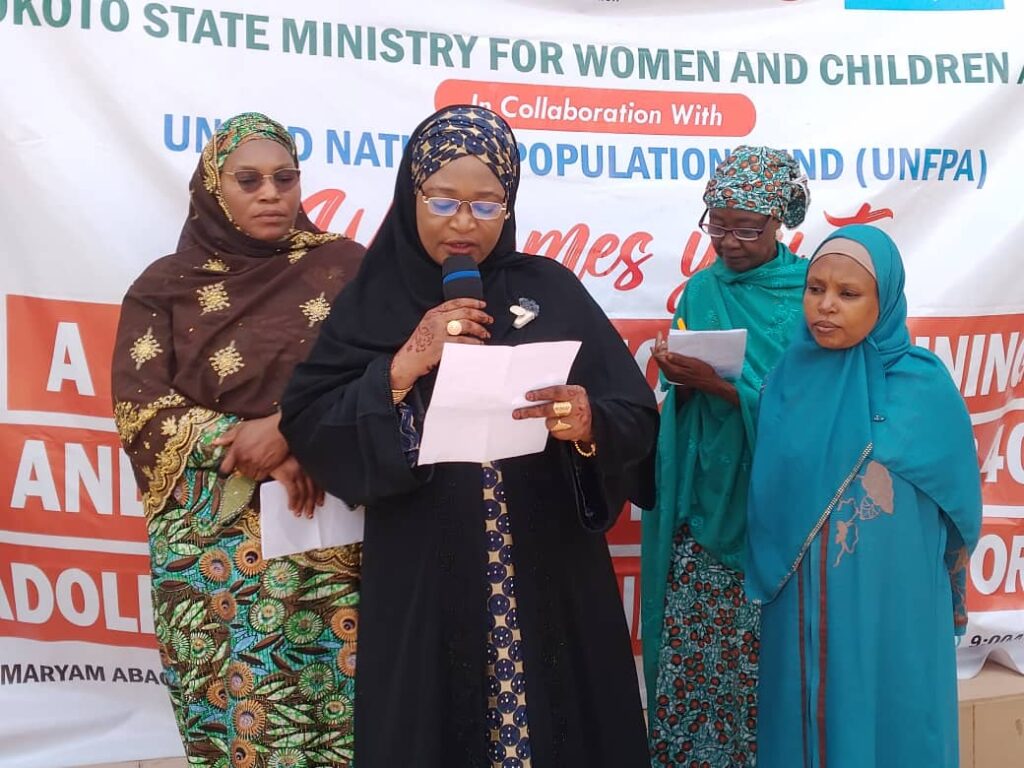The Sokoto State Government has concluded a five-day intensive livelihood skills training for 40 survivors of Vesico-Vaginal Fistula (VVF) and Gender-Based Violence (GBV), aimed at promoting healing, dignity, and self-reliance among vulnerable women across the state.
The initiative organized by the Ministry for Women and Children’s Affairs in collaboration with the Ministry of Budget and Economic Planning and supported by the United Nations Population Fund (UNFPA) culminated in a graduation ceremony at the Maryam Abacha Women and Children Hospital in Sokoto.
The program was designed to equip participants with practical entrepreneurial skills to foster financial independence, support social reintegration, and build long-term resilience.
Speaking at the event, the Commissioner for Women and Children’s Affairs, Hajiya Hadiza Shagari, praised the resilience of the women in overcoming trauma and health challenges. She described the training as a demonstration of the government’s commitment to women’s empowerment, gender inclusion, and community rehabilitation.
“These young women have shown extraordinary strength. This training is not just about skills, it’s about restoring hope, reclaiming dignity, and paving a new path toward economic self-sufficiency,” she said.
Also speaking, the Commissioner for Budget and Economic Planning, represented by the Permanent Secretary, Hajia Maryam Barade Wamakko, described the program as a significant milestone in the state’s human development strategy. He reaffirmed the state government’s commitment to supporting survivors of violence and reproductive health complications through targeted interventions.
UNFPA’s technical and material support was instrumental to the program’s success. The agency donated 100 Caesarean Section packs and 100 Mama Kits to be distributed to women in need.
Representing UNFPA, Alhaji Musa Wamakko urged the beneficiaries to make effective use of their starter kits and seed grants, cautioning against selling the items.
All 40 participants received starter packs and seed capital to help launch small-scale businesses, empowering them to achieve financial independence and serve as role models in their communities.
The graduation ceremony was attended by top government officials, development partners, healthcare professionals, and media representatives, who hailed the initiative as a major step forward in addressing GBV and maternal health challenges in Sokoto State.
A highlight of the event was the official presentation of the starter packs to the participants to help kick-start their entrepreneurial journeys.















